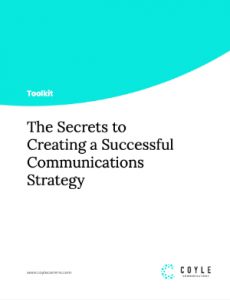Welcome to the fourth edition of Global Perspectives featuring Cindy Shiner.
Cindy Shiner has worked as a journalist for more than 20 years with a focus mainly on Africa. She reported from there for six years, contributing stories to The Washington Post, The Guardian, Time magazine, National Public Radio and the United Nations. Cindy is currently an editor at AllAfrica.com.
During my time as a freelance journalist in Africa I would have accomplished little without the help of numerous local reporters. They provided contact names, perspective, translation, story tips and great company over the years that I reported from West and Central Africa.
But things with the local press didn’t always run smoothly. As a desk editor for the Associated Press and the Integrated Regional Information Networks in West Africa, I often had to work with local reporters in a different capacity. They were contributing stories that we would translate (if in French) and edit (if in English) and turn into stories that met the standards of mainstream Western media.
This was rarely as straightforward as it might seem.
Few of the reporters have sufficient training. We needed to constantly double check for sourcing, accurate name spellings, accuracy of statistics and additional details to round out an anecdote to be able to turn a story around.
With the arrival of the Internet additional challenges arose. Unless a reporter was tried and trusted over a long period of time we needed to cut and paste parts of the stories they submitted to us into Google to make sure the article, or a part of it, wasn’t plagiarized. Discovery of plagiarism once warranted a warning, and twice would mean the reporter lost us as one of their “strings.” Few of them write for only one news outlet.
And nowadays it isn’t just Western journalists seeking contact with African reporters. It’s also PR firms, the communications departments of non-governmental organizations, and other groups seeking to get a message across to a wide African audience. Companies that rarely thought of reaching out to their audiences in Africa through newspapers and radio can now do so easily. It’s as easy as an email or Skype call away. Almost gone are the days of redialing, hoping it wasn’t a rainy day and the phone cables were dry, and that a call would go through.
But whether representing the Western press, an NGO or a private company, there are a few rules that apply across the board when dealing with members of Africa’s media. Here are a few lessons I’ve gleaned over the years:
Make sure you can trust the contact. If you call a newspaper, for example, ask for someone specific that has been recommended. Just because someone is a managing editor doesn’t mean they’re the best person to talk to. If you want a reporter to cover a story to publicize the launch of a vaccination campaign, for example, do some initial research. Check out the local newspapers online and see whose reporting you like. Pick a couple of reporters. Then try to find out if they’re reliable, which brings me to my next point.
Ask your local embassy press attaché. They follow the local press pretty closely and have a good idea about who is good and reliable and who is not. Of course, like anything, some press attachés are better than others.
Maintain contact. Once you find a reporter whose work you like, and whose work has been verified as accurate, give them a call and tell them what you have coming up that you would like for them to cover. Tell them you like their work. Point out something specific.
Financial clarification. This is really important. Make sure they know that you are not going to be paying them if you’re not – that you’re trying to publicize something. If you are going to pay them for something, make sure you negotiate the terms of the deal up front. And get it in writing.
Above all, get to know the people you are working with. Have a friendly conversation. We often have no idea what sort of pressure an individual may be under. A relative might be sick, their child might be sick, they might be struggling for school fees, their spouse may have lost their job. Don’t make it all business.




